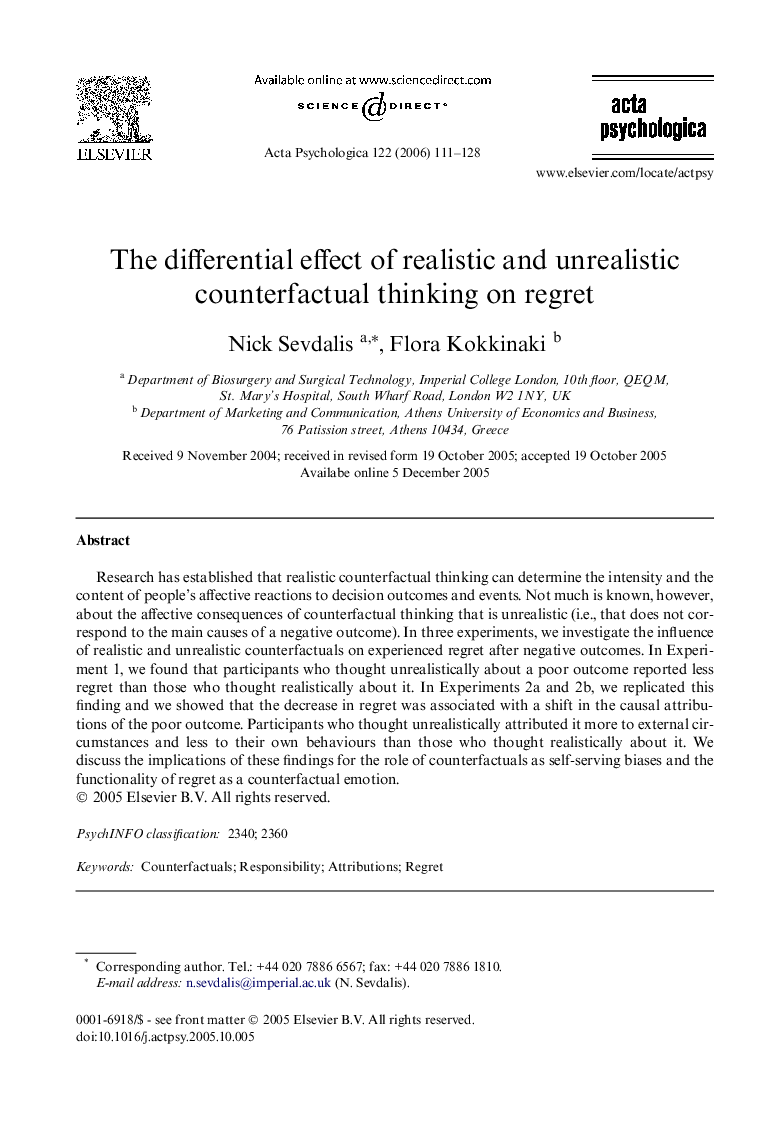| Article ID | Journal | Published Year | Pages | File Type |
|---|---|---|---|---|
| 920669 | Acta Psychologica | 2006 | 18 Pages |
Research has established that realistic counterfactual thinking can determine the intensity and the content of people’s affective reactions to decision outcomes and events. Not much is known, however, about the affective consequences of counterfactual thinking that is unrealistic (i.e., that does not correspond to the main causes of a negative outcome). In three experiments, we investigate the influence of realistic and unrealistic counterfactuals on experienced regret after negative outcomes. In Experiment 1, we found that participants who thought unrealistically about a poor outcome reported less regret than those who thought realistically about it. In Experiments 2a and 2b, we replicated this finding and we showed that the decrease in regret was associated with a shift in the causal attributions of the poor outcome. Participants who thought unrealistically attributed it more to external circumstances and less to their own behaviours than those who thought realistically about it. We discuss the implications of these findings for the role of counterfactuals as self-serving biases and the functionality of regret as a counterfactual emotion.
